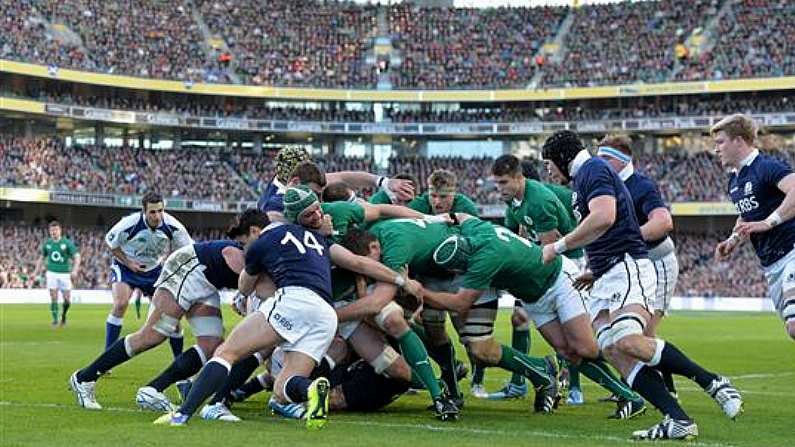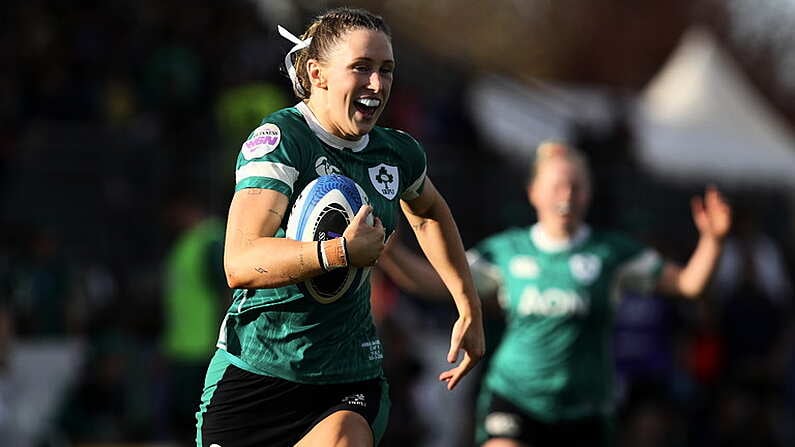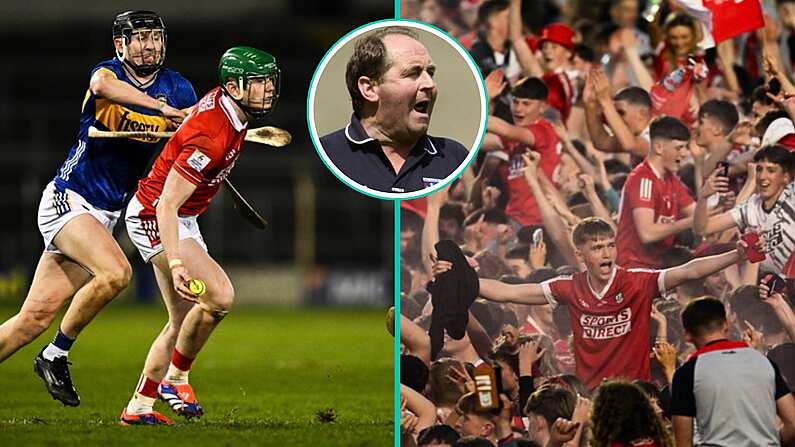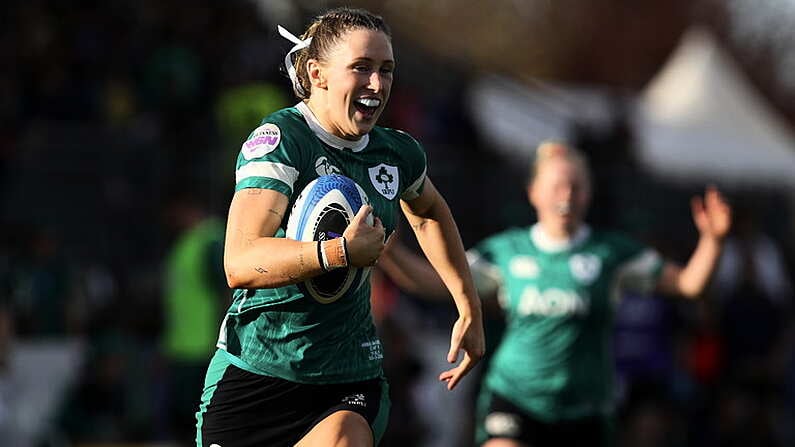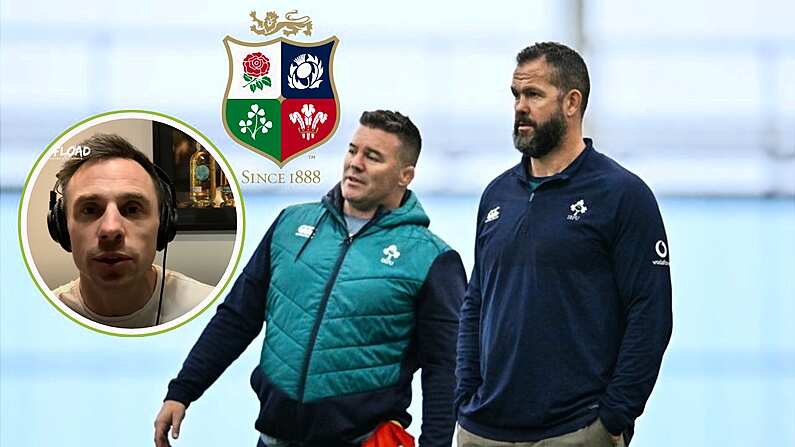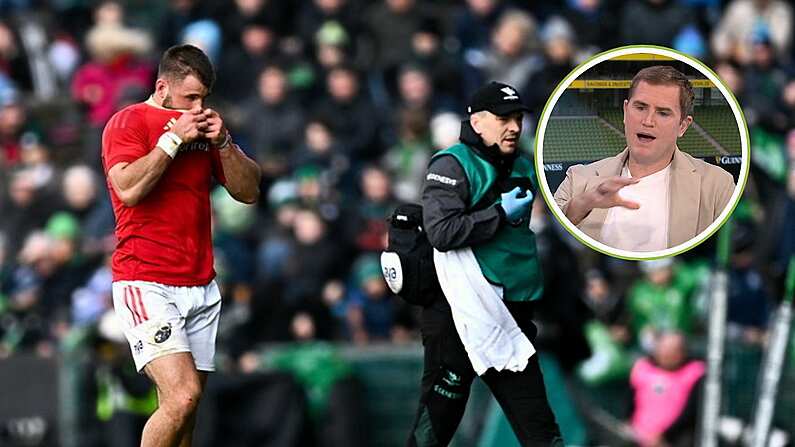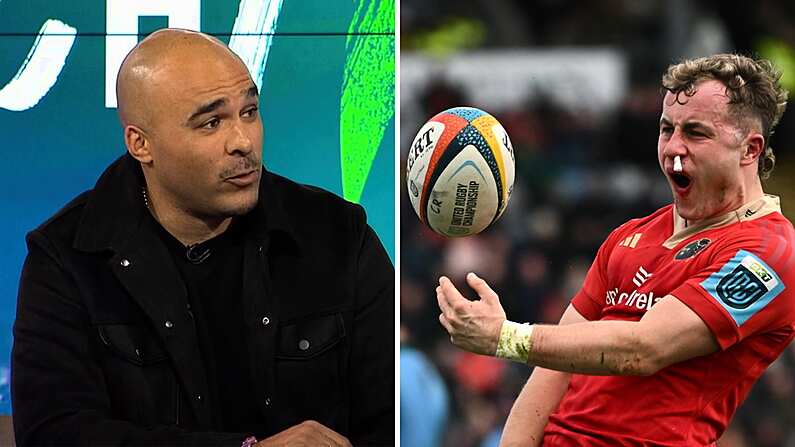A couple of days after last year's Six Nations finale, while the feast was going on elsewhere, a few podcasters on the Scotsman website wearily poked their way through the wreckage of another miserable Scottish season.
In the midst of all the gallows humour, the identity of the champions prompted one contributor to recall happier times - when the competition whipping boys wore different coloured shirts.
I remember back in the 80s and 90s, I used to feel sorry for Ireland. I thought they'd never win anything.
Look at them now, deary me, back to back Six Nations champions. Now, we look like the ones who aren't going to win anything. Now we're the ones people are feeling sorry for.
For the past decade and a half, Scottish rugby has been looking askance at Ireland and wondering how they do it. The two countries have similar rugby traditions and have suffered from the same handicaps in terms of playing resources. Neither have much of a history of winning though both have enjoyed periods of prosperity.
Tom English, BBC journalist and the author of the superb 'No Borders - Playing Rugby For Ireland', spoke to Balls.ie about the nascent optimism in Scottish rugby and also reflected on the effect of their long bleak years.
He says that over the past fifteen years, Scottish rugby folk have gazed at Ireland in envy - but also in admiration and in hope.
They would look at Ireland with great envy. Have done for the guts of 16 years. There has been so much introspection here over in that time. I mean I moved to Scotland in 2005 and pretty much non-stop since then, it's been looking at Ireland and going, 'how come they can do it and we can't?'
To look at the great players and great leaders that Ireland have had. There has been a huge amount of respect - and envy. There has been, no question.
You look at Scotland's record against Ireland in that time. I think sixteen test matches in the Six Nations, and Scotland have won three. And many of the defeats they've suffered against Ireland have been really, really heavy ones.
So, I think (they've felt) fear whenever they've played Ireland but huge respect for the way Ireland have done it.
And an inspiration as well, I would say. That Ireland could do it, there was always this hope that Scotland could do it as well.
Scotland and Ireland's historical head-to-head record has been characterised by long, interminable-seeming winning and winless streaks rather than by the rollercoaster tit-for-tats that define our rivalry with other nations, most notably the Welsh.
[soundcloud url="https://api.soundcloud.com/tracks/252365812" params="auto_play=false&hide_related=false&show_comments=true&show_user=true&show_reposts=false&visual=true" width="100%" height="450" iframe="true" /]
Ireland famously went the whole of the 1990s without beating Scotland. Since the turn of the century, Scotland's record has been more or less as bad. They have fluked a couple of wins in this decade, aided by a mixture of Irish hubris, profligacy and injury woes.
However, Ireland's recent winning streak seems to have arrived at a very propitious time.
In an article English wrote last year after Ireland's win in Murrayfield last year, he alluded to the broader growth of the game in Ireland, suggesting that a chasm had opened up between the two countries that the Scots would find impossible to bridge.
In making rugby popular with people who never before cared for it, Ireland has opened up a gap on Scotland that will be nigh on impossible to breach.
When John Hayes, the beloved prop from farming stock in rural Limerick, made his debut against Scotland 15 years ago, he was asked about his background in the sport. He didn't really have one, he said. He only started playing rugby aged 17.
He said that if somebody had showed him a rugby ball when he was 16 years old he would have presumed it was a Gaelic football that had been rolled over by a tractor.
In Scotland, there has been no such growth spurt. Even as Scottish football continues to decline, rugby has remained in the shadows, resolutely confined to its posh boy origins.
And there is no large pool of GAA players, into which Scottish rugby can dip.
Glasgow get 6-7000 at games. Edinburgh will get about 3000 at games. And they're your flag bearers, your two big clubs.
So, it is very much a minority sport even though the standard of the Scottish Premier League is getting worse, year on year, it still dominates everything here. It dominates the landscape. I wouldn't quite call Scotland a one sport country, but it's not a million miles off that.
Rugby very much plays second, third fiddle in terms of promotion of the game, numbers watching. There is still a lot of work to do. The players are still largely coming from the private schools.
It's Scotland's tragedy that they don't have the GAA.
You spend more and more time out of Ireland and you come to appreciate the GAA all the more and the athletes they produce. And the territory that rugby moved into in recruiting GAA players and boosting their numbers.
Scotland don't have that territory to move into. And that's been part of the problem.
Rugby fans, particularly in this country, have never seemed to need much evidence to predict the renaissance of Scotland. Their imminent revival has been touted at numerous intervals down the years, often on the flimsiest grounds. Through it all, they have remained near, or sometimes at, the bottom of the Six Nations table.
But, now, finally, it looks like the recovery is coming. Scottish rugby's long recession appears to be over. Does Cotter deserve the credit or has the renaissance its roots in the improved performance of Glasgow in the Celtic League.
Scotland are definitely on an upward curve at long, long last. It's been utterly miserable for the guts of 16 years. They've been dreadful. The win in Italy was significant because it ended nine matches in the Six Nations without a win. To back that up with the over France was huge.
I think Scotland are getting there. The Scotland coaching system is pretty impressive. It's not just Cotter. Jason Holleran is the backs coach. He's a friend of Cotter's from New Zealand. He's very impressive. They brought in Richie Gray - now, not the forward Richie Gray, the breakdown specialist - he's from Galashiels in the borders. He worked with South Africa during the World Cup. He's a real innovator in terms of breakdown work. He's invented all these breakdown machines which have made him a lot of money. The 'Collision King' and various other products that clubs and international teams have bought at great expense and made him a fortune. He's been their breakdown coach in the Six Nations.
Gregor Townsend has really kickstarted this revival by dragging Glasgow forward, getting them to win the Pro12. So, Townsend, even though he's not involved in the international coaching setup, is a hugely significant figure in this mini-revival.
Are Scotland bouyant enough, and are Ireland vulnerable enough, to result in a Scottish win this weekend?
I think Ireland are in transition and not decline. Ireland are still in a reasonably good place considering all the injuries. If they win at the weekend they finish third. With all the new players coming in, that'll be a reasonable result for Ireland.
I think Ireland will shade it. That said, I thought France would shade it. I think it'll be very close. Withouth doubt, this Scotland team is travelling to Dublin with more hope and optimisim and feelgood than any other Scotland team this century.

